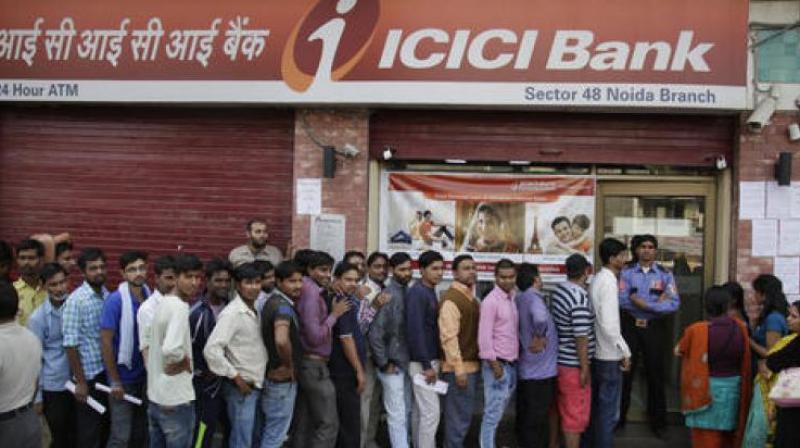Demonetisation: Banks to use indelible ink to ensure people change cash only once
Banks in major cities will start marking note exchangers with the ink, the official said.

New Delhi: A small mark of indelible ink, used mostly during elections to prevent multiple voting, will be put on the right hand finger of those exchanging banned Rs 500 and Rs 1,000 notes for new ones from Wednesday to prevent crowding at banks by repeat exchangers.
As per the assessment of the finance ministry, bank counters are getting overcrowded due to same people turning up again and again to exchange old notes.
“Ideally, the ink mark should have been put on the left hand as is done when a person casts his vote. But with by-elections due in some states, an ink mark for exchange or withdrawal of currency note on the left hand will lead to unnecessary difficulties. So it has been decided that the ink mark would be put on right hand,” an official said. The ink manufactured at the Mysore Paints and Varnish Ltd — the firm that has supplied indelible ink to the Election Commission since 1962 to mark voters, was made available to banks and post offices from Tuesday night.
Banks in major cities will start marking note exchangers with the ink, the official said. The withdrawn notes accounted for 86 per cent of the cash circulating in the Asia’s third-largest economy.
More steps to curb repeats
An expert committee comprising officers from the Department of Economic Affairs and the Department of Financial Services are preparing standard operating procedure (SoPs) for ink marking as well as additional steps to be taken to manage the crowds.
The move comes amid long, unending queue at banks even after a week of Prime Minister Narendra Modi announcing withdrawal of old Rs 500 and Rs 1,000 notes in biggest crackdown on black money, corruption and counterfeit currency.
The notes withdrawn accounted for 86 per cent of the cash circulating in the Asia’s third-largest economy. The source said the use of indelible ink would prevent “unscrupulous persons” from use conduits for exchanging notes. A persons, as per the revised guideline, is allowed to exchange old notes totalling up to 4,500 on a single day.
Earlier in the day, Economic Affairs Secretary Shaktikanta Das said it was noticed that the same people were coming back again and again to exchange notes, causing the long queues and creating hassles for genuine people to get their cash.

